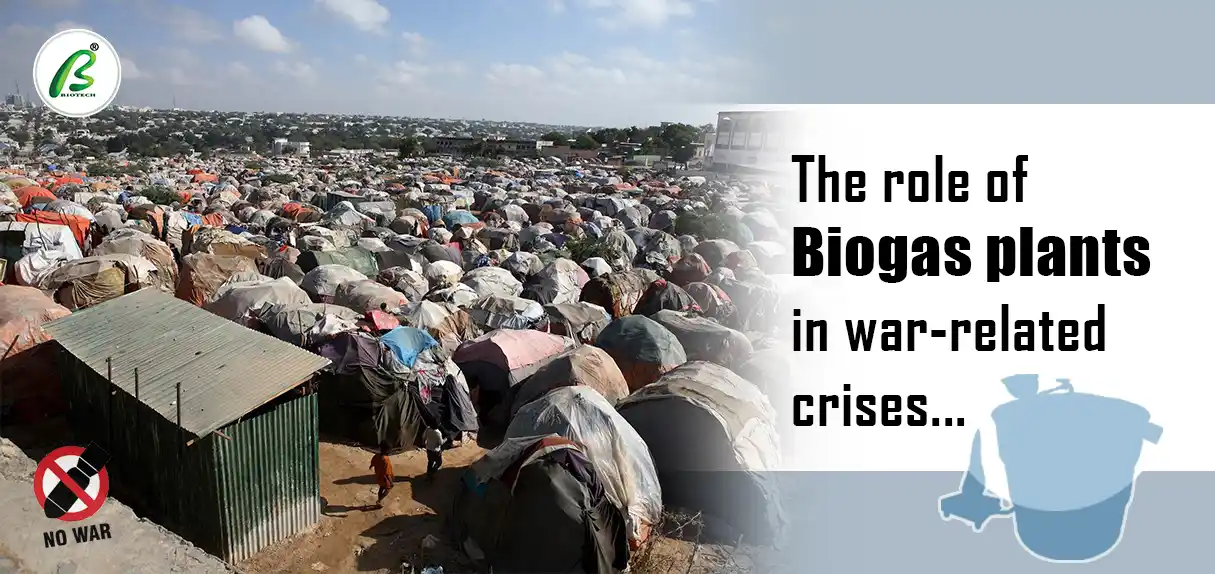
Armed conflicts and humanitarian crises often lead to the breakdown of essential infrastructure, energy systems, and waste management services. As the world seeks climate-resilient and inclusive solutions, biogas plants are emerging as vital tools in promoting stability, health, and sustainability in war-affected regions.
One of the most immediate and devastating impacts of war is the collapse of central power grids and fuel supply chains. In both urban centers and rural communities caught in the crossfire, blackouts become the norm, paralyzing healthcare, sanitation, and communication systems. In such high-risk scenarios, biogas technology offers a decentralized and highly adaptable energy solution.
By processing organic materials like livestock dung, food scraps, and crop residues, biogas plants generate methane gas—an effective fuel for cooking, lighting, and heating. Hospitals, emergency shelters, field clinics, and disaster relief command centers can rely on biogas to function off-grid, maintaining vital services when they are needed most. Even small-scale biogas units can keep a maternity ward running or power mobile water filtration units that serve displaced populations. Unlike fossil fuels, this energy source is renewable, locally generated, and not subject to price volatility or supply chain blockades.
War leads to mass displacement, often resulting in overcrowded refugee camps with poor sanitation infrastructure. These camps, set up in a hurry and often with limited planning, struggle to manage large volumes of organic waste. Open defecation, waste dumping, and unhygienic conditions give rise to disease outbreaks and long-term environmental damage.
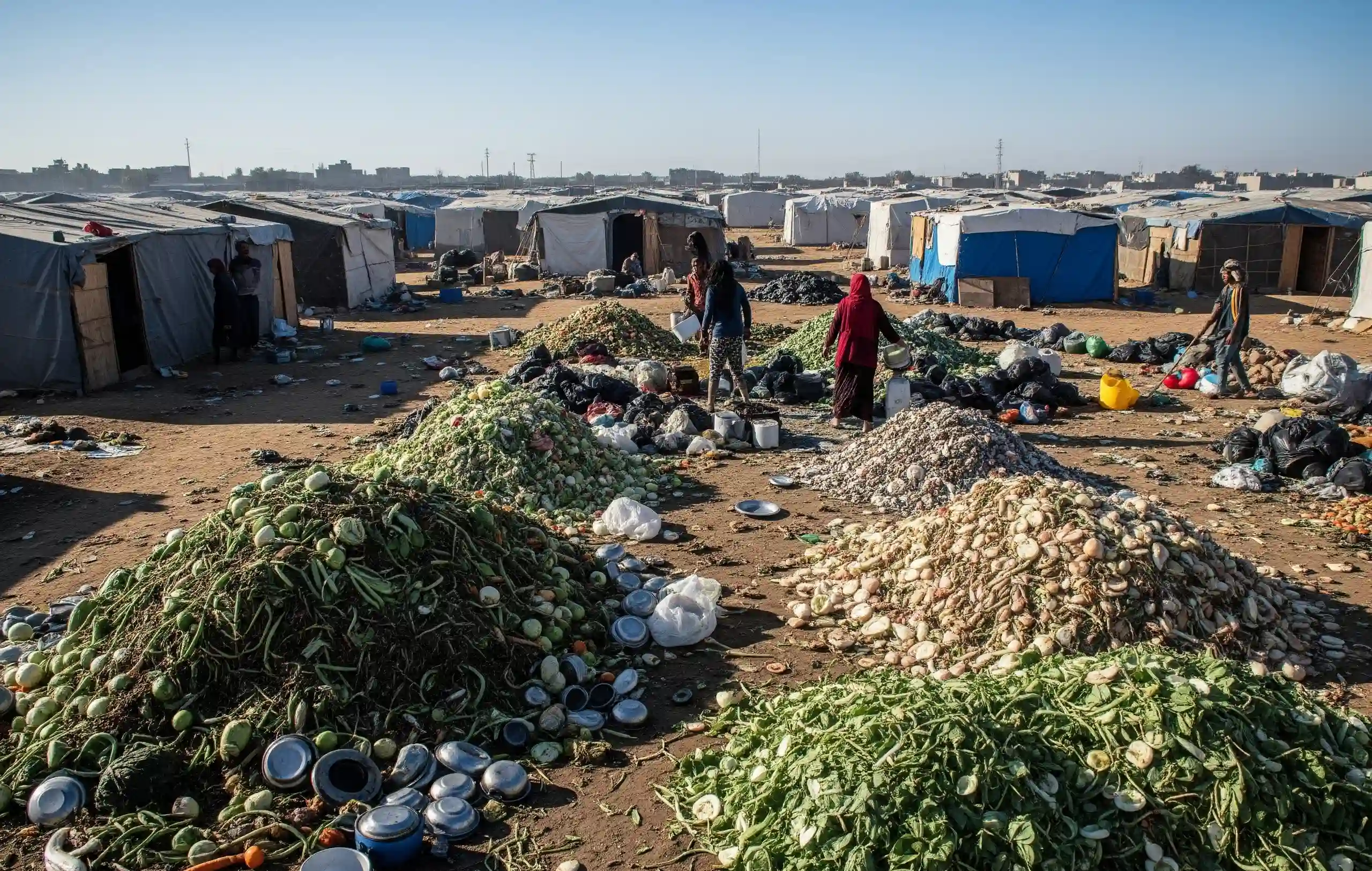
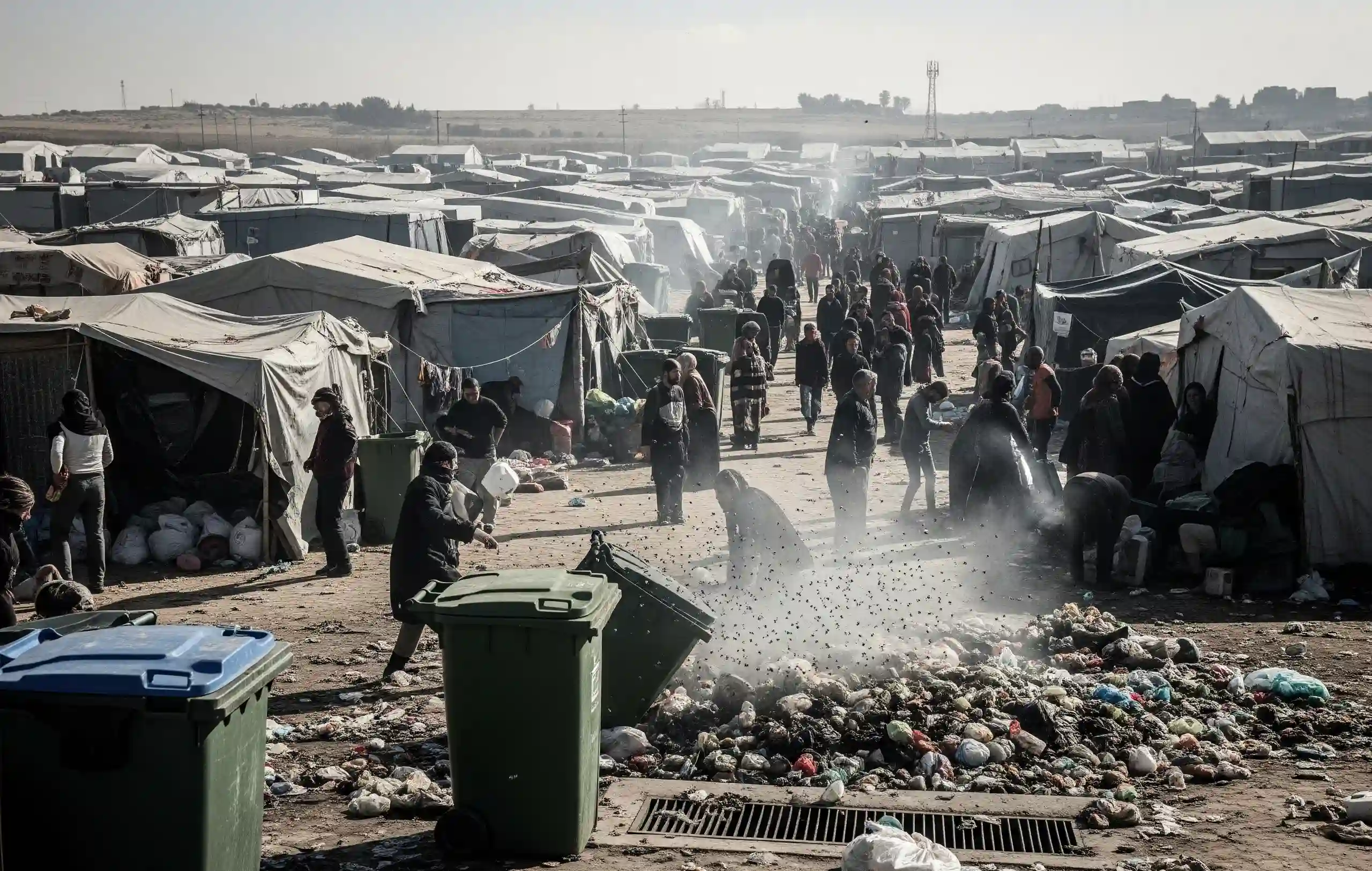
Biogas digesters address both problems-waste and energy-in one solution. Human waste, food remnants, and agricultural residues generated in camps can be channeled into biogas systems, where they're processed anaerobically. This not only produces clean-burning gas but also results in a by-product called digestate, which is pathogen-free and can be safely used as fertilizer. Thus, biogas plants contribute to better hygiene, reduce greenhouse gas emissions from waste, and offer a clean alternative to biomass-based cooking practices.
Beyond functional advantages, this solution supports dignity and safety for camp residents. Women and girls, in particular, are often exposed to risks when collecting firewood far from camp perimeters. Biogas reduces that need, improving safety and reclaiming time for education or income-generating activities.
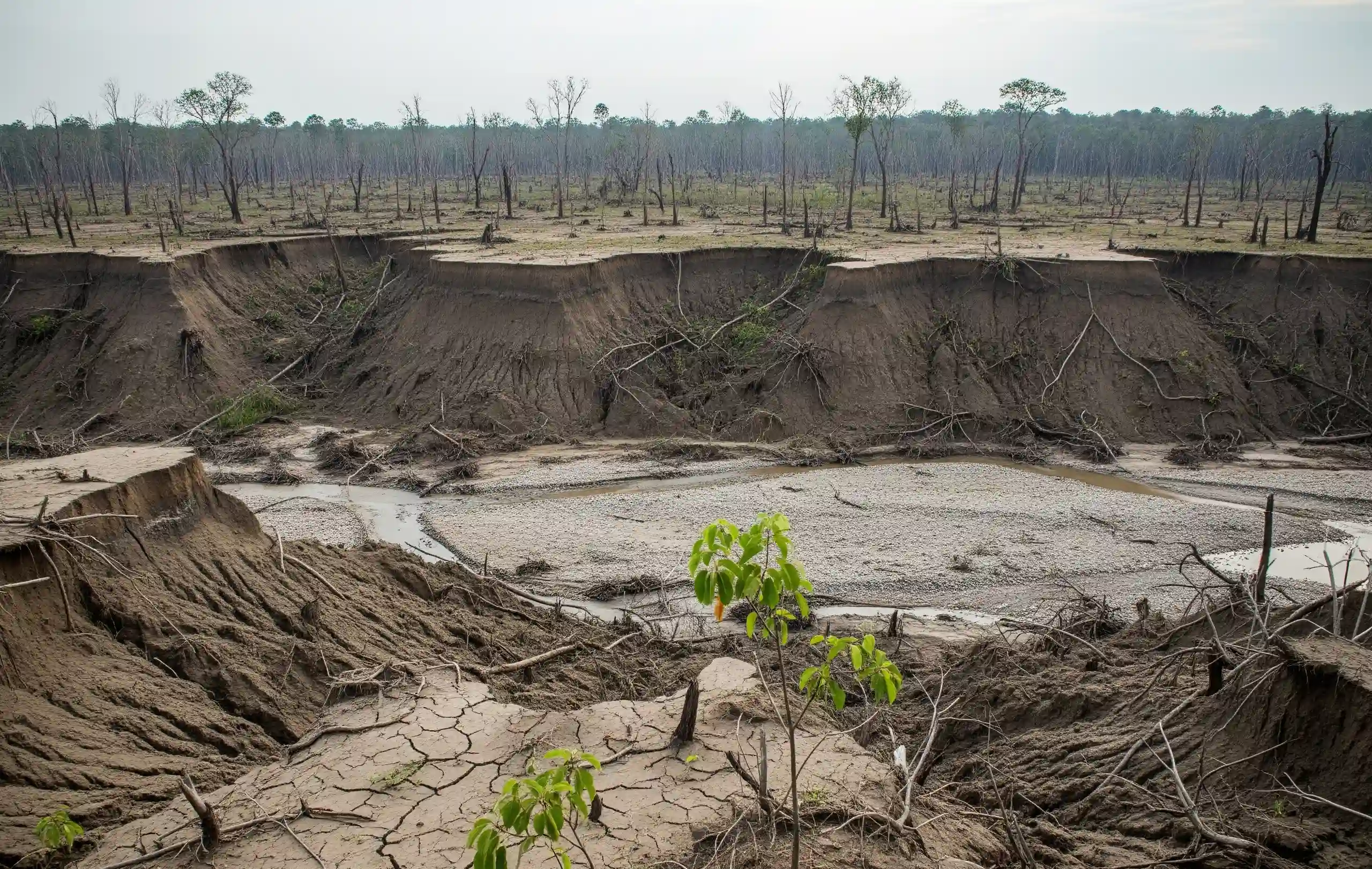
Conflict zones typically experience a spike in environmental degradation. Forests are cleared for firewood, contributing to deforestation, soil erosion, and biodiversity loss. In energy-starved communities, kerosene, diesel generators, and charcoal become standard-even though these sources are expensive, inefficient, and environmentally harmful.
Biogas systems reduce reliance on these polluting fuels. A medium-sized household biogas unit can replace up to 5 kg of firewood or 2 litres of kerosene daily, lowering household emissions and reducing pressure on already fragile ecosystems. For entire communities or camps, this adds up to significant reductions in deforestation and
air pollution, which are often exacerbated during wartime when conservation and monitoring systems have collapsed.
Moreover, local production of energy through biogas fosters energy sovereignty, allowing communities to meet their needs independently of state-controlled or vulnerable supply chains. In doing so, these systems become not only environmental tools but instruments of resilience and autonomy.
In rebuilding conflict-torn societies, biogas technology offers an opportunity to reimagine energy and waste systems through a sustainable lens. Rather than defaulting to fossil fuels and centralized models, governments and NGOs can invest in renewable infrastructure that delivers multiple benefits-climate mitigation, health protection, local employment, and agricultural regeneration.
Biogas technology, when paired with training and community ownership, cultivates long-term resilience and environmental stewardship. And in a world facing simultaneous crises of climate change, energy insecurity, and displacement, these are no longer optional extras=they're essential to just and sustainable recovery.
Post-conflict recovery demands more than just physical reconstruction-it requires a transformative approach that creates economic opportunities, restores degraded ecosystems, and builds long-term resilience against future shocks. In this landscape, biogas technology stands out as a solution that tackles energy, employment, agriculture, and climate challenges in tandem.
In the wake of war, entire economic sectors-from industry to agriculture-may lie in ruins. Jobs become scarce, especially for vulnerable populations such as youth, displaced communities, and demobilized combatants. Biogas plant deployment offers not only clean energy but also the chance to rebuild livelihoods sustainably.
Constructing and operating a biogas unit calls for skilled labor: masons, plumbers, technicians, and energy managers are needed throughout the system's lifecycle. This opens up local employment in green sectors and supports vocational training programs.
People impacted by war-especially in rural or peri-urban zones-can be equipped with new skills in renewable energy system installation, operation, and maintenance.
Beyond energy, agriculture stands to benefit enormously. The by-product of biogas production-digestate-is a nutrient-rich organic fertilizer. Unlike synthetic alternatives, which are often costly or imported, digestate can be produced on-site, offering a circular solution for reviving damaged or abandoned farm land. As Farmers return and replant crops, the use of digestate supports soil regeneration, increases yields, and decreases reliance on chemical fertilizers, which are sometimes inaccessible or environmentally harmful.
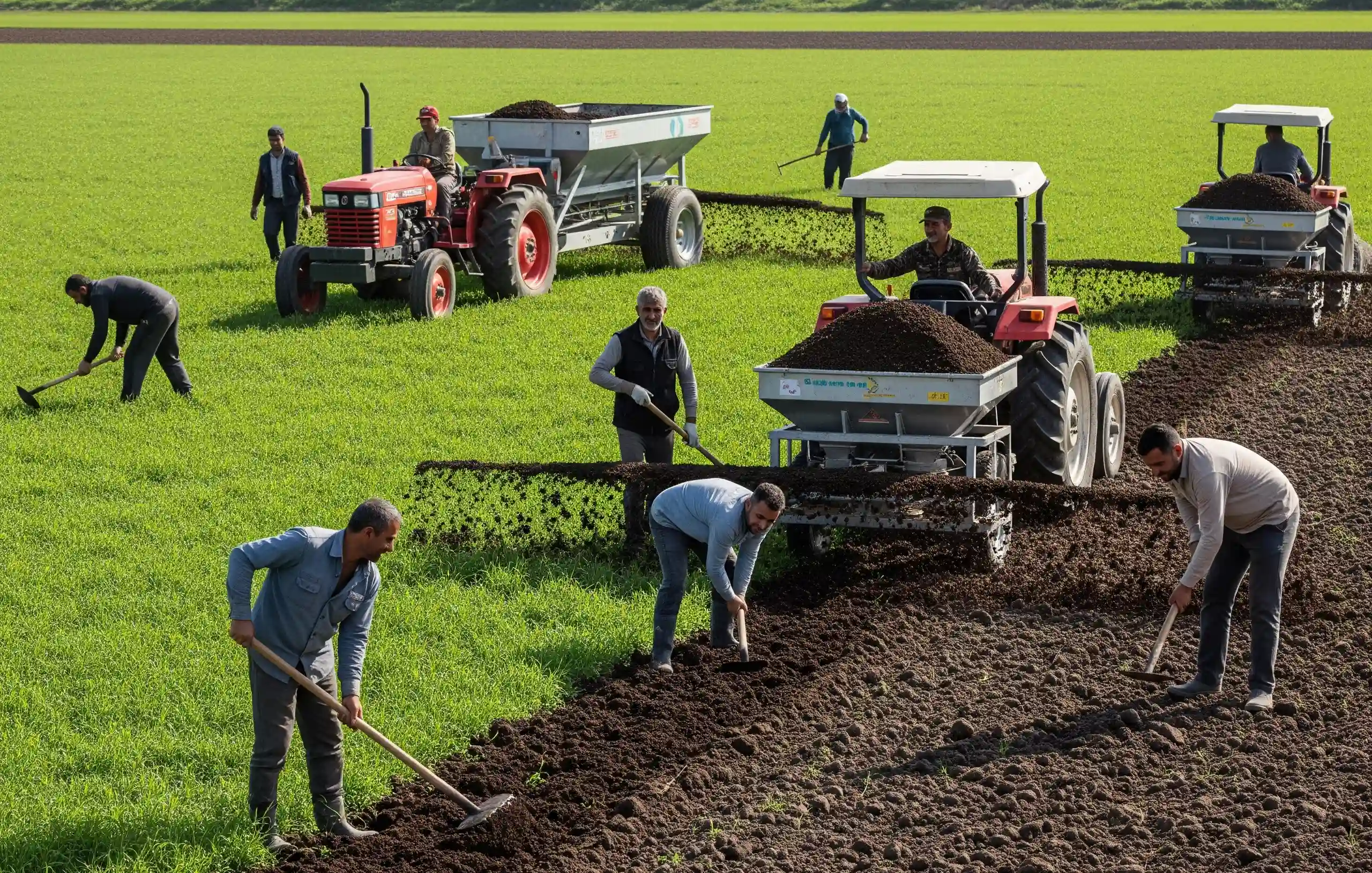
Reintegrating former fighters and displaced individuals into peaceful, productive work is crucial for long-term stability. By linking biogas expansion to peacekeeping and job creation, societies can nurture a green economy rooted in eco-friendliness, dignity, and self-reliance.
Conflict doesn't pause or slow down the climate crisis-it often worsens it. Deforestation, emissions from military operations, and interrupted climate programs leave war-affected areas especially vulnerable to floods, droughts, and land degradation. Integrating biogas systems into reconstruction plans can serve as a cornerstone of climate-resilient development.
Biogas replaces firewood, charcoal, and kerosene for cooking and heating-fuels that exacerbate deforestation and contribute to indoor air pollution. Transitioning to biogas sharply reduces carbon emissions and cuts down hazardous smoke exposure, a common health issue in many post-conflict households. On top of that, using digestate enhances water retention in soil, aiding food system recovery in climates with rising instability.
Reconstruction efforts often prioritize immediate infrastructure: roads, hospitals, housing. But embedding renewable energy into this rebuild phase has long-term payoffs. Schools powered by biogas can stay open during blackouts, healthcare clinics can refrigerate vaccines, and irrigation systems can run without fossil fuel dependence. And most importantly, biogas systems are modular and scalable. From household digesters to community plants, their flexibility allows them to meet local energy needs while adapting to disrupted geographies or displaced populations. By fostering resource-efficient practices, they nurture a circular economy ethos within the recovery process.
Biogas, then, is not just a technical fix—it is a symbol of resilience. It signifies that communities can emerge from devastation with smarter, cleaner systems that not only restore but reinvent how energy, waste, and livelihoods are managed.
Biogas in Conflict zones
1. Sustainable post-war development.
2. Refugee camp energy solutions.
3. Climate-smart reconstruction.
4. Renewable energy for displaced communities.
5. Waste-to-energy in crisis.
6. Green jobs in fragile states.
7. Organic waste recovery.
8. Circular economy in emergencies.
9. Peacebuilding through clean technology.
10. Climate adaptation in conflict zones.
11. Humanitarian engineering innovation.
12. Digester-powered agriculture.
13. Eco-friendly sanitation.
14. Conflict-sensitive energy systems.
15. Rebuilding livelihoods sustainably.
16. Resilient energy access.
17. Emissions mitigation in recovery.
18. Solar-biogas hybrid systems.
19. Clean energy for food systems.
20. Inclusive energy planning.
21. Agriculture support post-conflict.
22. Deforestation prevention with biogas.
23. Environmental justice in war recovery.
24. Low-carbon infrastructure rebuilding.
Telephone: +91-471-2331909, 2321909, 2332179
E-mail: mailtobiotech@gmail.com


Ernakulam (Cochin)
Telephone: +91-484-4858695
E-mail: mailtobiotech@gmail.com


Kozhikode (Calicut)
Mob : +91-9446-000-962
E-mail: mailtobiotech@gmail.com


Telangana
Telephone: +91 40 29330078 , +919446000968
E-mail: gtp.nird@gmail.com

